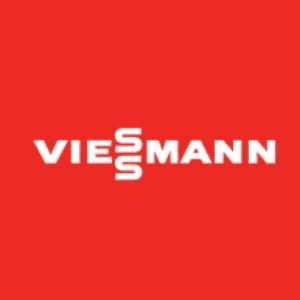Viessmann UK - Experts & Thought Leaders
Latest Viessmann UK news & announcements
Carrier Solutions UK has officially opened its state-of-the-art training academy in Stockport, where it will offer industry-renowned education and support for HVAC engineers across the UK. The flagship facility represents a significant investment in professional development, providing a dedicated center of excellence for engineers to train on the latest heating and cooling technologies. Carrier Solutions UK Ltd (formerly Toshiba Carrier UK Ltd) is a part of Carrier Global Corporation, a pioneer in intelligent climate and energy solutions. HVAC equipment and heating solutions The new training center spans approximately 1300 square meters and has been converted from a former warehouse to create a cutting-edge learning environment. Equipped with Carrier Solutions UK’s latest innovations and best-in-class technology, it will offer hands-on experience with an extensive multi-brand range of Carrier and Toshiba residential and light commercial HVAC equipment and heating solutions under the Viessmann and Vokèra brands, enabling engineers to refine their skills using air-to-air and air-to-water heat pumps, SHRM Advanced VRF systems, boilers, and award-winning controllers. F-Gas training rigs Additionally, the center features F-Gas training rigs for industry certification Additionally, the center features F-Gas training rigs for industry certification, making it one of the most comprehensive training facilities in the UK HVAC industry. The site will function as an accredited BPEC training center, ensuring trainees receive the highest level of industry-recognized training so they can confidently offer their services backed by a 10-year warranty. Future of the HVAC industry “This investment in training excellence is a major step in supporting the future of the UK’s HVAC industry,” said David Dunn, Managing Director, UK&I, Carrier RLC EMEA. He adds, “We are committed to equipping engineers across the country with the knowledge and expertise they need to work with the most advanced solutions available today.” First phase of a broader initiative During the official opening, industry professionals, customers, and partners were offered an exclusive first look at the facility, with the ribbon cutting by England and Sale Sharks rugby stars - George Ford and Ben Curry. This opening marks the first phase of a broader initiative, with additional training centers set to open in Wakefield, Telford, London Colney, and Plymouth later this year. Forefront of HVAC innovation “Our goal is to make high-quality training accessible to engineers nationwide,” said David Dunn, adding “By expanding our network of brand-standard training centers, we are ensuring that professionals up and down the country can train on all the equipment from across the Carrier Solutions UK portfolio, be backed by a 10-year warranty, and remain at the forefront of HVAC innovation.”
Viessmann Climate Solutions UK will showcase its expanded portfolio of heating and cooling solutions at this year’s InstallerSHOW, to be held from June 24th to 26th, 2025, at the NEC, Birmingham. Viessmann Climate Solutions UK Ltd is part of Carrier Global Corporation, a pioneer in intelligent climate and energy solutions. Viessmann’s newest boiler Viessmann Climate Solutions UK’s stand will unite the Carrier and Viessmann brands on stand 5D20 Under the theme - 'Power Play as One Team', Viessmann Climate Solutions UK’s stand will unite the Carrier, Toshiba, and Viessmann brands on stand 5D20, reinforcing Carrier’s position as a pioneer within the UK HVAC sector. Product highlights of the show will include the Viessmann Vitocal 150-A/151-A residential air source heat pump, Viessmann’s newest boiler, the Vitodens 025-W, and the Carrier AquaSnap 30AWH-P R290 monobloc heat pump. Future of heating and cooling “As a pioneering force in the HVAC industry, we are proud to present our latest innovations, demonstrating how Carrier Solutions UK is helping to shape the future of heating and cooling,” said David Dunn, Managing Director UK&I, Carrier RLC EMEA. He adds, “This year’s stand will showcase our best-in-class solutions across residential and light commercial applications, all designed to enhance efficiency, performance, and sustainability.” Technical and sales representatives from Viessmann In addition to technical and sales representatives from Viessmann, the stand will be hosted at various times during the three days by rugby players from Carrier Solutions’ sponsorship partner, Sale Sharks. There will also a fun, interactive area on the stand, to entertain visitors.
Viessmann Climate Solutions UK has streamlined the online services it provides to installers to make them more user-friendly, instant and intuitive. Viessmann Climate Solutions is a part of Carrier Global Corporation, a pioneer in intelligent climate and energy solutions. Viessmann customer service VPlus portal includes a range of easily accessible extras designed to enhance the customer service The new VPlus portal, which is live now, includes a range of easily accessible amenities designed to enhance the Viessmann customer service experience for heating engineers. In just a few clicks, users will be able to view and spend reward points, browse and book training courses, register newly installed units, get warranties sent directly to their clients and complete Gas Safe notifications free of charge. Simple and automated “The VPlus portal now contains so much more than just our loyalty scheme,” explains Chris Leech, Marketing Manager UK & Ireland, Viessmann Climate Solutions UK. “We’ve put everything installers need on a daily basis in one place and made sure it’s really quick and easy to navigate. And we’ve also automated various processes so there’s no delay with things like new account registrations or claiming rewards.” Previously, to set up a new Viessmann online account, installers had to submit a photo of themselves holding their Gas Safe registration card and wait for it to be manually verified. Now their details are checked automatically so they can log in immediately. Instant rewards The request would then be manually actioned by Viessmann’s promotions team Similarly, to spend VPlus loyalty program reward points, formerly users had to choose a prize in one area then go to a separate form and add the relevant gift code. The request would then be manually actioned by Viessmann’s promotions team. “The process took some time,” Leech continues. “Now you just click on the item you want, and it’s automatically dispatched by our suppliers straight away. It’s just like online shopping.” Registering the Viessmann products Installers accumulate VPlus reward points by registering the Viessmann products they’ve fitted. These can then be immediately exchanged for rewards such as engineering tools, branded workwear, games consoles, office equipment, shopping vouchers or pre-paid debit cards. New tiers of prizes are unlocked at different installation quantity milestones with higher-tier items worth hundreds of pounds each. Training and warranties Installers can also browse and book a range of free training courses on boilers and heat pumps Within their VPlus account, installers can also browse and book a range of free training courses on boilers and heat pumps, as well as signing up for various BPEC qualification programs. Additionally, they can register new installations to obtain extended product warranties of up to twelve years and benefit from free Gas Safe notifications. Roll-out Viessmann will be communicating directly with its existing online account users about the launch of the new VPlus portal. They will be able to seamlessly transfer their registration from the old to the new platform, including their training and product registration history.
Insights & Opinions from thought leaders at Viessmann UK
Some 38% of greenhouse gas emissions emanate from residential housing, specifically heating and cooling systems. Given the goal of ‘net-zero’ carbon emissions by 2050, new approaches have emerged to achieve that target. Some of the solutions currently being evaluated include the use of hydrogen as a replacement fuel, to store electricity from solar or wind power, or in fuel cells that use an electrochemical process combining hydrogen and oxygen to produce electrical energy and water. Hydrogen is the most abundant element in the universe, although pure hydrogen is rare on earth. It can be extracted from water (electrolysis), Alternatively, it can be extracted from natural gas using carbon capture technology to prevent carbon, a by-product, from escaping into the air. Modern terrace houses Whether hydrogen is burned for heat or passed through a fuel cell to make electricity, the only byproduct is chemically pure water. When combined with renewable energies like solar and wind power, hydrogen can be used to store energy as an alternative to batteries; unlike batteries, hydrogen gas can be stored indefinitely. FutureGrid operates three modern terrace houses with gardens in the remote hills of Cumbria Like natural gas, hydrogen is odorless. The distinctive smell currently added to natural gas could also be added to hydrogen to ensure residents quickly notice a leak. In the United Kingdom, FutureGrid operates three modern terrace houses with gardens in the remote hills of Cumbria. The houses provide a preview of a world where hydrogen has taken the place of natural gas. Yellow polyethylene pipes Engineers are testing how Britain’s natural gas pipe infrastructure can be converted from transporting fossil-fuel gas to handling hydrogen. Heating of British homes accounts for about 15% of carbon emissions, which would be eliminated with a transition to hydrogen. Hydrogen is more combustible than traditional natural gas, and its smaller molecules make it more likely to leak. There is a historical precedent for the transition in the United Kingdom. During the 1960s and 1970s, the gas industry converted from town gas (a byproduct of the distillation of coal and oil) to natural gas (mostly methane), which was discovered in the North Sea. The transition to a pipe system that can accommodate hydrogen has arguably already begun in the United Kingdom, where the gas industry is using yellow polyethylene pipes (which do not interact with hydrogen) to replace the metal pipes (prone to become brittle when exposed to hydrogen) in the country’s iron mains network. High-Volume technology Worcester Bosch has developed a hydrogen-fired boiler that could replace natural gas boilers An advantage of hydrogen is that the transition would be undetectable to consumers, who could continue to use boilers to heat their houses, although the fuel would be hydrogen rather than natural gas. Worcester Bosch has developed a hydrogen-fired boiler that could replace natural gas boilers, but they use a hydrogen blend – 20% hydrogen and 80% natural gas. In the future, converting to all hydrogen would require an hour-long service call and only involve changing a couple of components such as the burner. Hydrogen boilers are currently a niche market; however, a regulatory change mandating their installation could make them a high-volume technology, just as natural gas boilers are today, according to the company. Heat pump technology Skeptics point to the cost of converting a country’s underground gas pipelines to hydrogen. Others suggest that a transition to energy-efficient electric heat pump technology would be simpler, and in fact is already underway. In the heat pump scenario, hydrogen could be used in a fuel cell or to store energy (from solar or wind power) in lieu of batteries. Skeptics point to the cost of converting a country’s underground gas pipelines to hydrogen The Hydrogen House in Hopewell, N.J., has been converted to run exclusively on solar and hydrogen power. Inventor Mike Strizki converted the home with a grant from the New Jersey Board of Public Utilities and using his own personal funds. It is the first solar-hydrogen residence in North America and operates completely off the grid. The only emissions are chemically pure water and medical-grade oxygen. Medical-Grade oxygen Features include a 40kw solar installation, 20kw backup power, an electrolyzer to generate hydrogen, and a hydrogen fuel cell. The home was designed to allow for the expansion of an electric and/or hydrogen refueling station. The plan is to transform the house into an interactive educational attraction with hands-on demonstrations related to clean and renewable energy. The Vitovalor 300P is a fuel cell heating appliance, made by German manufacturer Viessmann, that uses the principle of cogeneration to generate both power and heat. To do so, the fuel cell requires oxygen and hydrogen (obtained from natural gas in an earlier process). The generation of heat and power is based on an electrochemical reaction between the two elements, also called cold combustion.
New technologies continue to drive change in the HVAC market. HVAC’s image as a mature and stable industry can overshadow the high level of innovation taking place. Meeting environmental challenges and creating more cost-efficient systems are among the forces fueling the change. We asked our Expert Panel Roundtable: What will be the next big product trend in the HVAC market?
As the UK continues to battle through the coronavirus crisis, HVAC business owners and installers can be putting some of their enforced downtime to good use. This period of subdued trading is a rare opportunity to get into better shape for when economic activity picks up. One way of doing this is by sharpening the focus on markets which promise strong growth – and few markets are growing faster than that for heat pumps. The potential here is huge. Some 28,000 heat pumps are currently installed in the UK every year, and before the pandemic this number was rising annually at a rate of 15-30%. That equates to sales doubling every three to five years. New-builds account for the majority of those sales, but 30% are retrofits, and about 30% of those retrofits are in private residences. This means there’s a big opportunity for doing conversions from oil boilers to heat pumps at rural homes not connected to the gas grid. The ‘New Normal’ and Heat Pumps It is only realistic, of course, to expect a lingering dip in HVAC sales of all kinds, including heat pumps, until the post-pandemic world gets back on its feet. But when we do turn the corner into the ‘new normal’, heat pump sales will again climb strongly. One reason for this is consumer demand, the other is government policy. End-users are now increasingly aware of the dangers and disruptions threatened by carbon emissions and climate change – informally known as ‘the Blue Planet Effect’ – and more are being guided by their consciences to make environmentally-responsible heating choices. An Expected Spike In Demand Many end-users are also encouraged by the prospect of receiving payments from the government through the Domestic RHI tariff. When we do turn the corner into the ‘new normal’, heat pump sales will climb strongly If RHI tariffs are the carrot, however, the government is also going to wield a big stick. The Chancellor’s spring statement last year dropped the bombshell that low-carbon heating systems, not fossil-fuel heating, should be installed in all new homes built after 2025. Though this policy might perhaps get slightly delayed and diluted, there can be no doubting that radical change is on the way. With all this in the pipeline, the industry should be preparing now to cope with the increased demand. But there’s some way to go: of the UK’s 120,000 registered gas engineers, merely 600 or so are MCS-registered to install heat pumps. Many more will be needed. MCS Certification Some installers are already recognizing this opportunity. Some 28,000 heat pumps are currently installed in the UK every year, and before the pandemic this number was rising annually at a rate of 15-30% This is evident in the heightened level of interest in the one-day introductory heat pump courses run nationwide by the Viessmann Academy. These courses provide a useful overview of what heat pump installations involve, helping participants decide whether or not they would like to go on to qualify with the MCS quality assurance scheme. This is a crucial decision, because having MCS certification is an obligation when installing equipment eligible for Domestic RHI payments. Some course participants decide to take the next step to MCS certification straight away, others decide to wait a while – but standing still in a fast-moving market can mean getting left behind! F-Gas Certification So what else must HVAC businesses and installers consider about heat pumps, in order to stay ahead of the game? In addition to MCS certification, F-Gas certification is also necessary when split air source heat pumps are installed. This is because the outdoor and indoor units have to be connected on-site with refrigerant pipework. Some installers choose to get F-Gas certified themselves, others sub-contract this part of the job to someone who’s suitably qualified. Of the UK’s 120,000 registered gas engineers, merely 600 or so are MCS-registered to install heat pumps It is possible to sidestep this need, however, when it is appropriate to install a monobloc heat pump – and the widening choice and affordability of monobloc designs is making them appropriate for a wider range of properties. A good example of this is Viessmann’s new Vitocal 100-A, an outdoors unit which has no need for a complementary indoor unit and is also easy to install because most components are integrated in the unit. New, compact and affordable air source heat pumps such as this, offering much-needed space-saving solutions for urban homes, are another reason why the heat pump market will boom. The Challenges Of Heat Pump Installation Though technological advances are making things easier, installing a heat pump isn’t ever going to be quite as straightforward as replacing an old boiler with a new one. Before starting an installation, first it is necessary to assess whether a heat pump is suitable for the property. This means checking that the property is well-enough insulated; checking the existing system’s radiators, which may need supplementing or replacing with bigger radiators or underfloor heating because of the lower flow temperatures of a heat pump system; and calculating the required size of the heat pump according to the building’s heat loss (and not including hot water demand). This period of subdued trading is a rare opportunity to get into better shape for when economic activity picks up At the installation stage itself, much of the work will be familiar to boiler installers, though weather compensating controls are obligatory for all MCS-approved work and as part of building regulations Part L. It’s also important to note that planning permission requires minimum distances between the heat pump’s outdoor unit, the plot’s borders, and neighboring properties. If this seems complicated, it doesn’t have to be: some heat pump manufacturers provide a calculator to simplify the task. Now Is The Time To Be Proactive Just as installers need a little time to assess whether a property should switch from a boiler to a heat pump, end-users also need a little thinking time, to consider adopting a technology new to them. By being proactive, HVAC businesses and installers can reap what they sow When customers get in touch because their existing boiler has broken down, the pressure for a quick fix can rule this out. But right now, when many of us have time on our hands, there’s the chance to inform customers of alternative heating solutions before their boiler needs replacing. Taking such pre-emptive action, by emailing information or mailing leaflets to customers, does require a little effort, but at least now there’s the time to do it. We are heading into a new era which will see boiler sales decline while heat pump sales rise. By making preparations for these profound changes, and by being proactive, HVAC businesses and installers can reap what they sow.
Leveraging Radiant And Hydronics To Help Achieve Decarbonization Goals
DownloadSealed Connectors In Harsh Environments
DownloadPowering And Cooling Next Generation Data Centers
DownloadDebunking Myths To Promote A Bright Future For Heat Pumps
DownloadOptimizing Comfort: The Ultimate HVAC Component Guide
Download
























